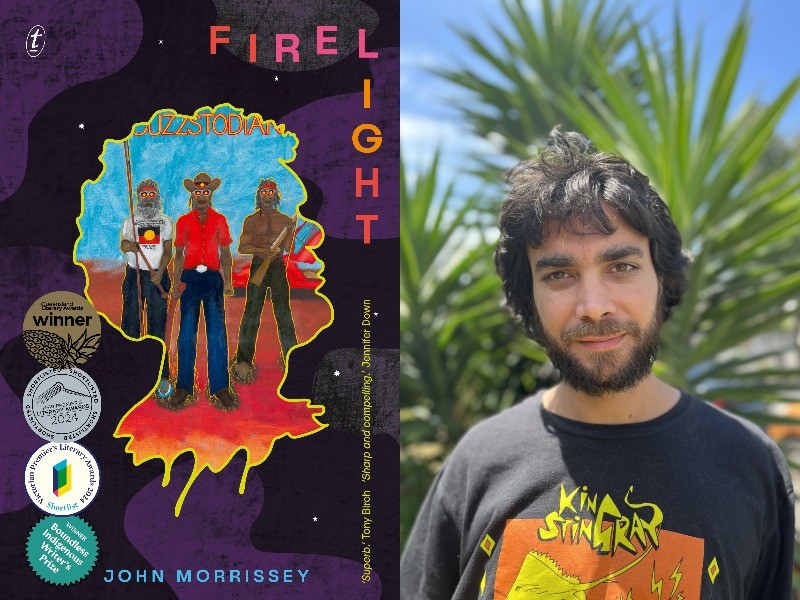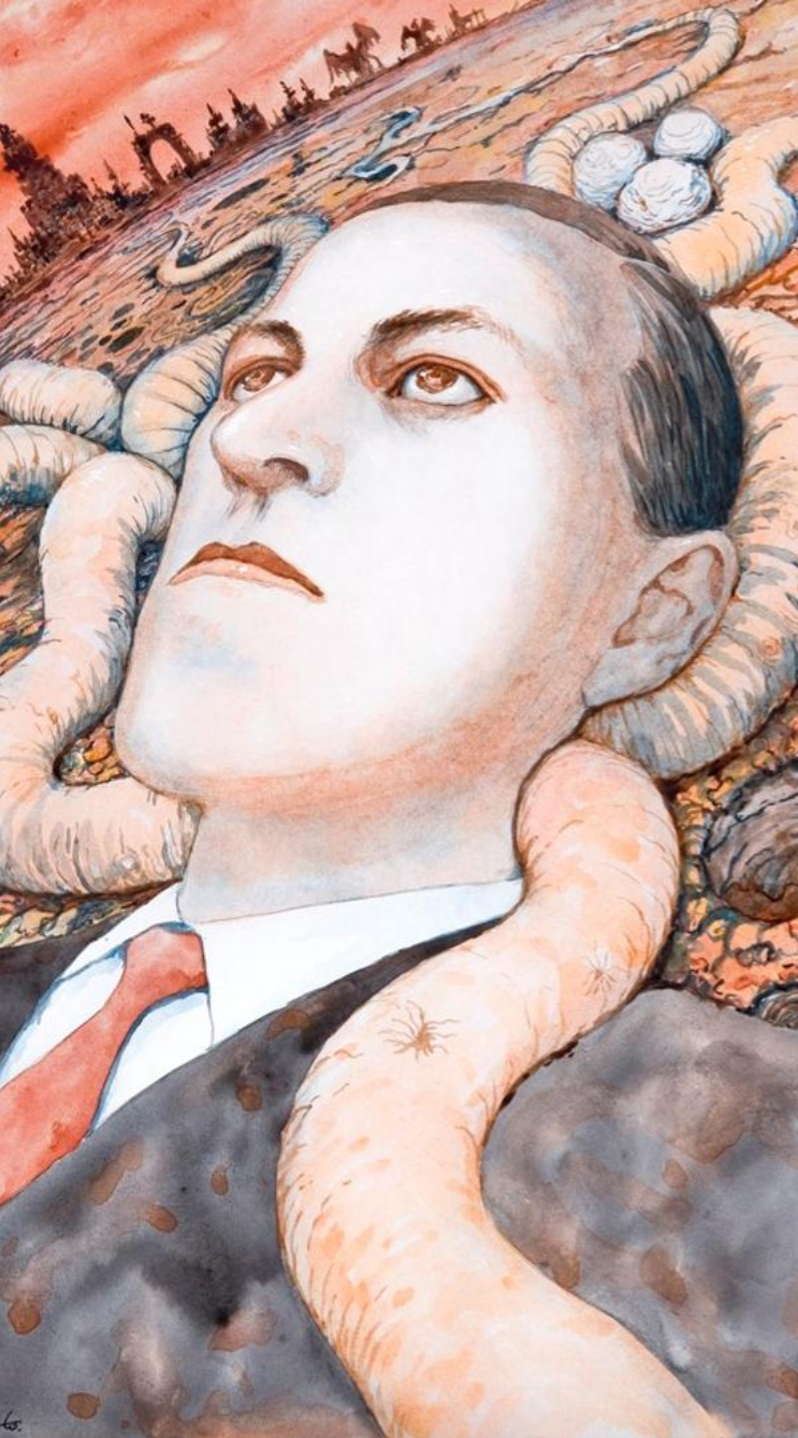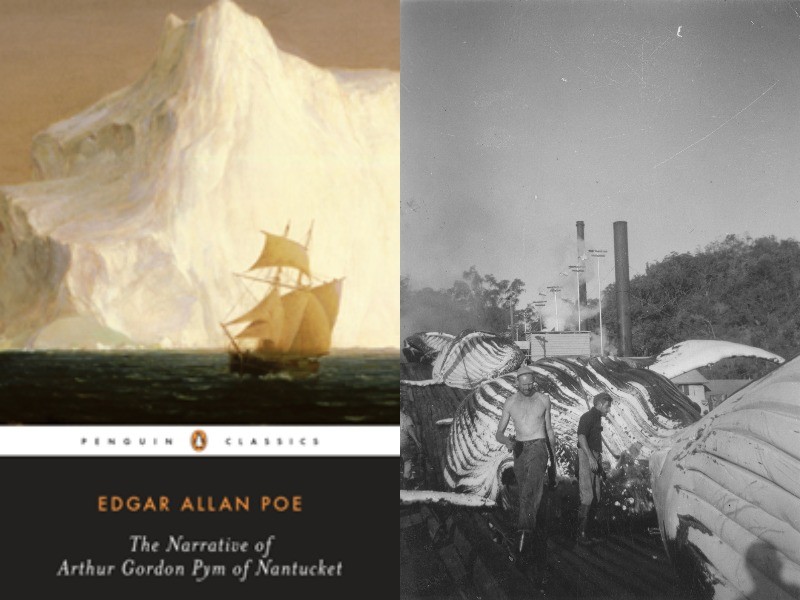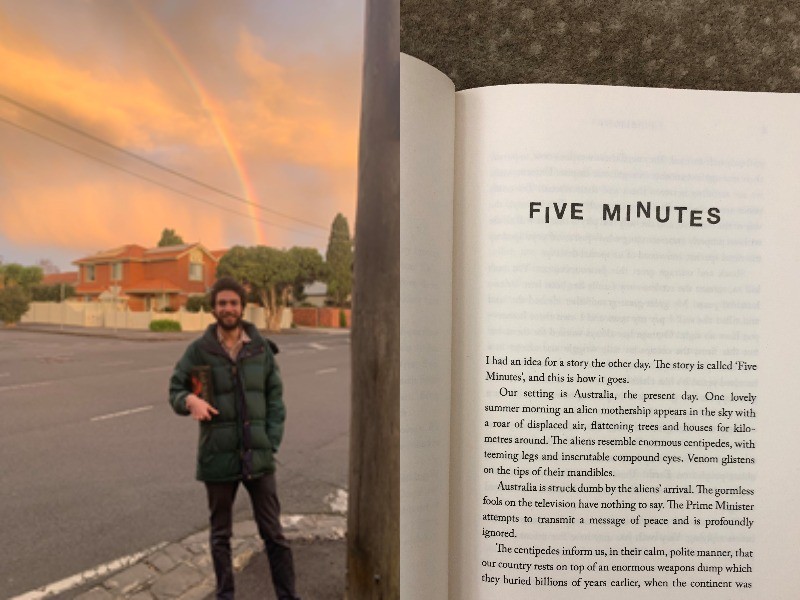Memorable people and places, chance moments, and inspiring works of art find their way into the words writers produce. Authors of all stages can pinpoint things that have altered the course of their creative lives. They can often say, ‘That was where it changed for me.’
In this series, we invite authors across Australia to reflect on three turning points that have shaped them, offering us glimpses into how each writer was made.
This post comes from the mind of the captivating, multi-award-winning author John Morrissey (including a recent win at the 2024 Queensland Literary Awards!).
John is a Kalkadoon man, living in Melbourne, who received early recognition via a Boundless Indigenous Writer's Mentorship. John's impressive debut collection of short stories is called Firelight and it is clever, offbeat and strange. And while the book is unlike anything you will read this year, you can hear echoes of other brilliant minds in each story, as John invites us to understand below.

John Morrissey with his short story collection Firelight (awards for the collection include the 2024 Steele Rudd Award for a Short Story Collection, and the 2023 Best Collection at the Aurealis Awards).
A person
Stephen King says in his book On Writing (first published in 2000) that when you write, you're typically writing for an Ideal Reader, who is a kind of idealised version of a person in your life who you're trying to please with your writing. They act as a critic over your shoulder and you benefit from the influence of their taste and discernment. I think there’s a lot of truth to the notion of an Ideal Reader, and my brother is that person for me. Our tastes are very similar – we both love horror – but we also diverge to an extent where I can benefit a lot from his insight. Among ten thousand other things, he really got me into H. P. Lovecraft, who is one of my favourite writers.
Sometimes you wonder whether you’re really writing what you want to write, or whether you’re trying to please some nebulous critical-commercial audience – trying to turn out something that will be successful, get you out of your day job, but will also be well-received by the people who write reviews and decide prizes. How could you possibly know whether the work is truthful to you? Like any question of personal authenticity, it recurs endlessly. An Ideal Reader offers a semi-solution to this quandary, because that person can, hypothetically, tell you what they think about it all.
I won’t include a picture of my brother, but here is a drawing of H. P. Lovecraft by horror manga artist Junji Ito:

Japanese manga artist Junji Ito drew this portrait of H.P. Lovecraft, American author of supernatural horror fiction.
A book
In 2009 I took an undergraduate subject on “American Classics”. A lot of the books were pretty turgid and had been included mostly for their historical interest (such as Uncle Tom’s Cabin). Also included on the reading list was The Narrative of Arthur Gordon Pym of Nantucket, Edgar Allan Poe’s only novel. I had read some Poe short stories in high school and liked him a lot, particularly “The Black Cat” and “The Masque of the Red Death”, which are still terrifying. The title of Arthur Gordon Pym was immediately uninspiring to me, however, and the book’s opening chapters, which seemed to be setting up a conventional adventure narrative about a young man who stows away on a whaling vessel, did not do much to assuage my concerns.
I couldn’t have been more wrong.
In many ways, Arthur Gordon Pym is the least conventional story I have ever read. The book takes a truly strange direction, and the final sequence has so much ethereal beauty, awe, and terror. I remember being stunned when I first read it; it was like peering through the page into something beyond. I re-read it two years ago and it had the exact same effect on me. Apparently Poe himself did not like the work very much; I think that a lot of the book’s power comes from the sense that he is revealing something which he does not completely understand himself.
I can’t find the cover of the edition of Arthur Gordon Pym which I read all those years ago in undergrad, but here is the cover of the Penguin edition, which captures the atmosphere well:

The Narrative of Arthur Gordon Pym of Nantucket by Edgar Allan Poe, and a photo of the Tangalooma whaling station, dated 1955, from State Library's collection.
An event
Getting older is justly maligned as a process, but its benefits are not completely fictitious. In terms of writing, I feel like I’ve experienced a lowering of my ambitions, in that I’ve abandoned any hope of being anywhere near as good as the writers I really admire
At the same time, I've got a better sense of what I feel like I can do well, and I know in which direction I'd like to take things. I know what I enjoy and I feel less of a need to impress anyone with my brilliant taste. It’s definitely easier to write as your life slows down a bit, although sometimes I feel like from a certain point I'll just be auto-cannibalising my youthful memories for raw material.
I don’t think that’s a bad thing necessarily; most writers I love come back again and again to the same topics and characters. It shows commitment.
Here is a photo of me after I submitted my manuscript, several years ago:

Rainbows on the day John delivered his manuscript to the publisher; and the first story in his collection, the exquisite "Five Minutes".
John Morrissey is a Melbourne writer of Kalkadoon descent. His work has been published in Overland, Voiceworks, Meanjin and the anthology This All Come Back Now. He was the winner of the 2020 Boundless Mentorship and the runner-up for the 2018 Nakata Brophy Prize. For his debut book, Firelight, John won the 2024 Steele Rudd Award for a Short Story Collection at the Queensland Literary Awards.
Comments
Your email address will not be published.
We welcome relevant, respectful comments.